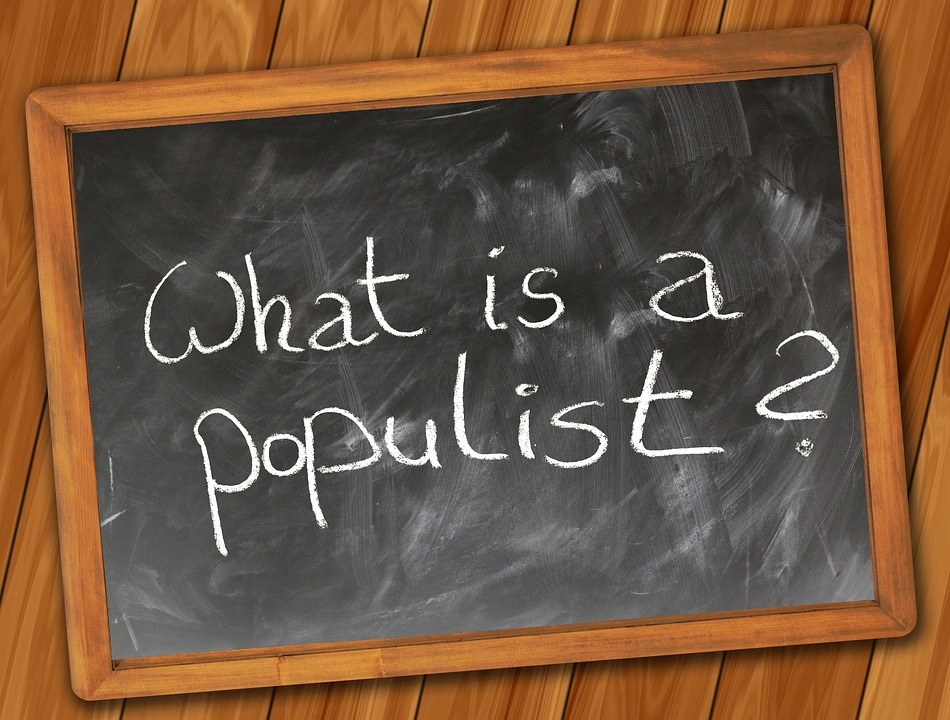To political science professor Elisa Chelle, who specializes in the United States, Joe Biden’s advanced age may not be a detriment to the Democratic Party in 2024, particularly because of Donald Trump’s legal woes.
“I don’t know about you, but I’m going to go to bed.” With these words, President Joe Biden suddenly ended his press conference in Hanoi, Vietnam, on Sept. 10. Despite the five questions carefully preselected by his staff at the recent Group of 20 Summit, he committed multiple blunders. From “Mohammed VII” to “Prime Minister Xi” to an incomprehensible reference to a western in response to a question on climate change, the event was torturous. Biden appeared beyond tired by jet lag and the pace of international visits. But this was not his first faux pas. There was the “200 million dead from COVID” he spoke of during his 2020 presidential campaign, his directing a question to a deceased congresswoman, or, more recently, his reading aloud instructions from the teleprompter to “repeat the line” in the middle of a speech on abortion rights. Biden’s team has repeatedly come to his aid, relaying to the press the supposed reasons for his gaffes: his stutter, propensity for blunders, or even humor. For their part, Republicans never miss an occasion to mock Biden’s “senility.” As a result, his physical condition now raises questions. Several clips have captured Biden repeatedly stumbling, or incapable of standing. His rigid gait and increasing difficulty getting around fails to draw comment anymore. The failing health of a president is not, of course, unheard of. There was, for example, John F. Kennedy, weakened by Addison’s disease, but treated with drugs and medication. Biden’s advisers are not fools. In 2020, they asserted that their boss would only serve one term. They even confided to the press that Biden would be “a good transition figure,” and that he was considering someone he could “turn things over to after four years.”
And what if the focus on age obscured a political strategy? President Biden has not, officially, prepared a successor. The idea that Vice President Kamala Harris could take the reins has been there since the start of the term. White House communications bear witness to this. On its official X account, formerly known as Twitter, one reads “the Biden-Harris White House,” which suggests a partnership more than a hierarchy. The president has entrusted his vice president with important policy matters, both foreign and domestic. The strategic matter of immigration was at the heart of special interest groups behind the Democratic Party, but also Republican orphans of Donald Trump’s wall.
But for three years, Harris, a woman and an ethnic minority, has not succeeded in making a mark. With no enthusiasm from her own camp, her chances of winning the 2024 primaries would have been infinitesimal. If Biden runs again, it is perhaps due to Harris’ failure to gain in popularity. Thus, a new Biden-Harris ticket is announced. This will allow, as provided for in the Constitution, the vice president to replace the president in the event of a failure to perform — a highly likely scenario. This calculation would give Harris the top job without her having to submit to the ballot box.
A bold gamble? Not so sure. Biden, even frail, retains his chance of winning the November 2024 election. As he reiterated on Monday, beyond his age, it is the future of democracy that is at stake — provided he can hold on for 18 months and face an opponent himself weakened, but for other reasons. Trump is the best campaign argument for the Democrats. Public opinion shows that the impeachment inquiry opened by Kevin McCarthy and the Hunter Biden trial carry less weight than Trump’s four criminal cases. The former president remains the bogeyman of choice for the center and the left.
There are two major differences to highlight here in comparison with 2016. First, there is no longer a challenger that hesitant voters might trust for the sake of novelty. Trump’s legal proceedings have, of course, galvanized the hard-core Republican electorate. But these white, less-educated voters are on the decline among the general electorate — representing 60% in the time of Reagan versus 40% today. Generation Z is playing an increasingly greater role in elections. More diverse and educated, it was already influential in the 2020 election, and its share of the electorate is steadily growing. Neither the young, nor moderates, nor independents are overwhelming supporters of Trump. However, their influence will determine the upcoming vote. The insistence of Republicans on nominating the former president as a candidate could be a boon for Biden and for Harris. Some might even say a blessing.





















































